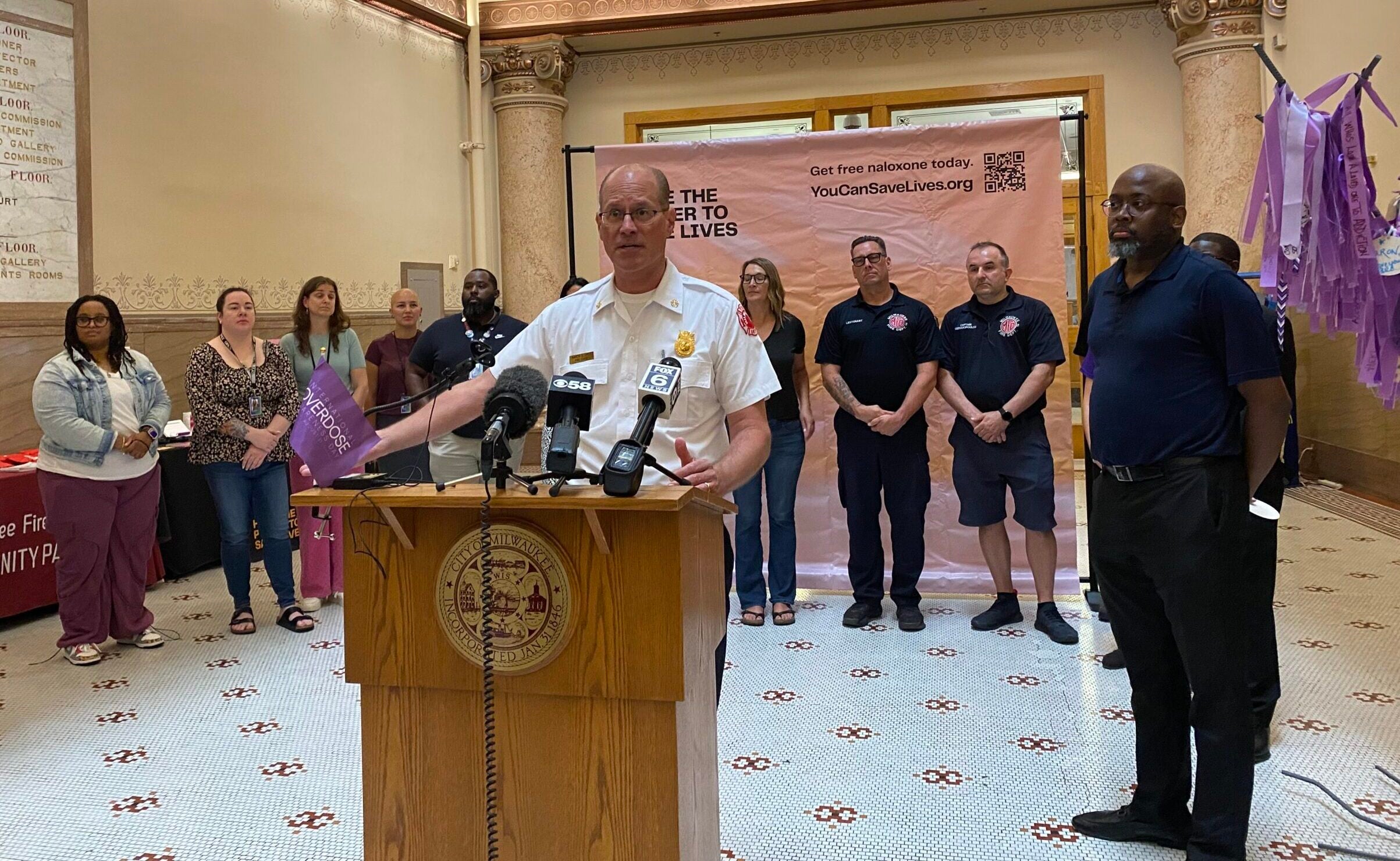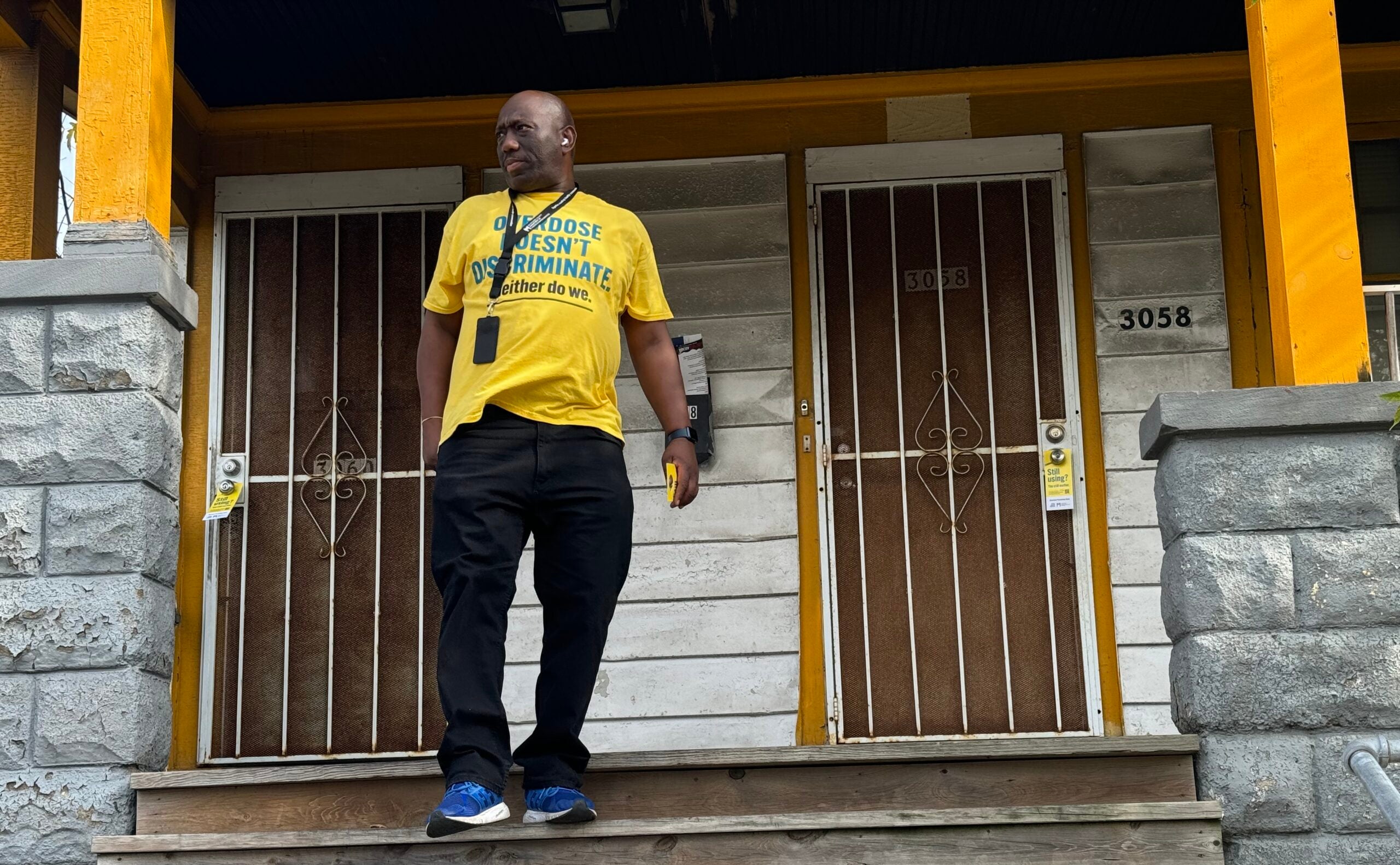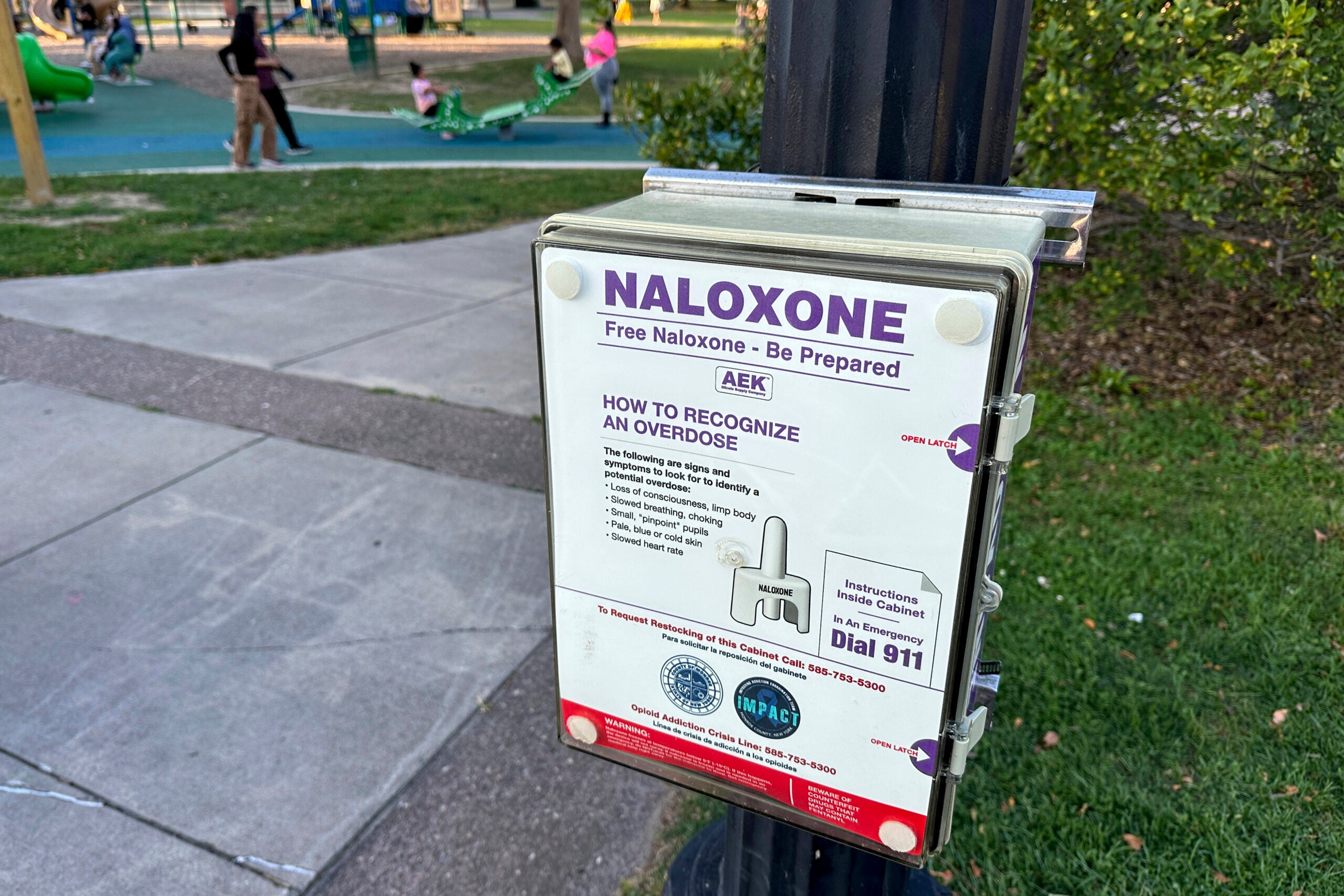Drug overdose deaths in Milwaukee County broke records again last year, according to updated data from the county Medical Examiner’s Office.
As of Wednesday morning, Milwaukee County reported 643 drug overdose deaths in 2021, said Sara Schreiber, technical forensic director. That’s up from 546 deaths in 2020.
“This stark increase is yet another reminder in a very vivid way of the number of lives that we’ve lost to this just in Milwaukee County alone,” Schreiber said.
News with a little more humanity
WPR’s “Wisconsin Today” newsletter keeps you connected to the state you love without feeling overwhelmed. No paywall. No agenda. No corporate filter.
Schreiber said the current 2021 figure is more than the combined count of homicide, suicide and motor vehicle deaths in the county.
Around 80 percent of the drug deaths logged contained the opioid fentanyl, Schreiber said. She said cocaine has also played a significant role.
“This has been a growing combination of drugs, cocaine and fentanyl, that has led to an increasing number of deaths and a real need for awareness surrounding this combination,” Schreiber said.
The state Department of Health Services counted 1,227 opioid deaths throughout Wisconsin in 2020, the most recent year with statewide data available. Milwaukee County alone accounts for more than a third of that total.
Milwaukee County Executive David Crowley said fentanyl is “literally wreaking havoc” on communities.
“This is something that we’ve just got to get a handle over,” Crowley said.
Schreiber said the issue transcends the Milwaukee area.
“This isn’t a unique problem in any way, and something that should not carry the stigma that it does,” she said. “Hopefully, if we can open the lines of communication and help and support each other within the community, we can reduce the numbers.”
Data from the National Center of Health Statistics counted more than 1,500 drug overdose deaths in Wisconsin in 2020, also the most recent year with data available, and more than 90,000 deaths nationwide.
Wisconsin has been dealing with an opioid epidemic for years, but the COVID-19 pandemic and resulting social isolation played a role in exacerbating the opioid crisis.
Crowley said he wants the community to be able to focus on trauma and healing.
“We have to get the overdose deaths under control, we have to eliminate them,” Crowley said. “One death is too many, and it’s just sad to see these types of things happening.”
Schreiber said increased technology has helped the Milwaukee County Medical Examiner’s Office expand its scope of analysis and identify new and emerging trends, which it can then share out to help analysis in other areas.
“The way out of this is still yet to be determined, but we’re creating awareness and trying to share the information that we have surrounding these deaths, so that others may learn from these experiences,” Schreiber said.
On Wednesday, Wisconsin Attorney General Josh Kaul told Wisconsin Public Radio’s “Central Time” the state will be getting $50 million in 2022 from an opioid settlement with drugmaker Johnson & Johnson. He said that will have a significant impact on the ongoing opioid epidemic response.
“To put this in perspective, the $50 million coming to the state of Wisconsin this year far exceeds the amount that we spend annually on the Treatment Alternatives and Diversion Program, which helps people who end up in the criminal justice system get access to treatment,” Kaul said. “So, this will really reinforce our efforts.”
Wisconsin will receive more than $400 million over an 18-year period. State law requires 70 percent of that go to county and local governments. The remaining 30 percent will go to DHS. Kaul said he hopes officials will use the money for drug treatment, recovery and prevention efforts.
“And it’s also important to note that this isn’t the only matter involving opioid distributors or manufacturers,” Kaul said. “We are in bankruptcy proceedings involving Purdue Pharma, for example, and there could be other cases as well. And our goal is to get as many dollars to our communities in the state as we can to help people with the fight against the opioid epidemic.”
DHS held a series of listening sessions in January to discuss how funds the state expected from settlements with opioid distributors and manufacturers could be used to address the epidemic. Multiple speakers at the first forum said they wanted to see expanded access to Narcan, a drug used to reverse overdoses.
Crowley, with Milwaukee County, said those funds would help make the necessary investments to stop overdoses. He also noted efforts in the Legislature to decriminalize fentanyl testing strips. Gov. Tony Evers has not yet taken action on the bill.
“Everything is on the table when it comes down to creating a healthy community,” Crowley said. “Coming from a neighborhood and growing up in a household that struggled with drug addiction, this is something that is near and dear to my heart, so tackling this issue, to make sure that families continue to stay intact and don’t have to deal with the burden of heartbreak because of drugs, this is something that we’ve got to get ahead on.”
Editor’s note: Rich Kremer contributed to this report.
Wisconsin Public Radio, © Copyright 2025, Board of Regents of the University of Wisconsin System and Wisconsin Educational Communications Board.






